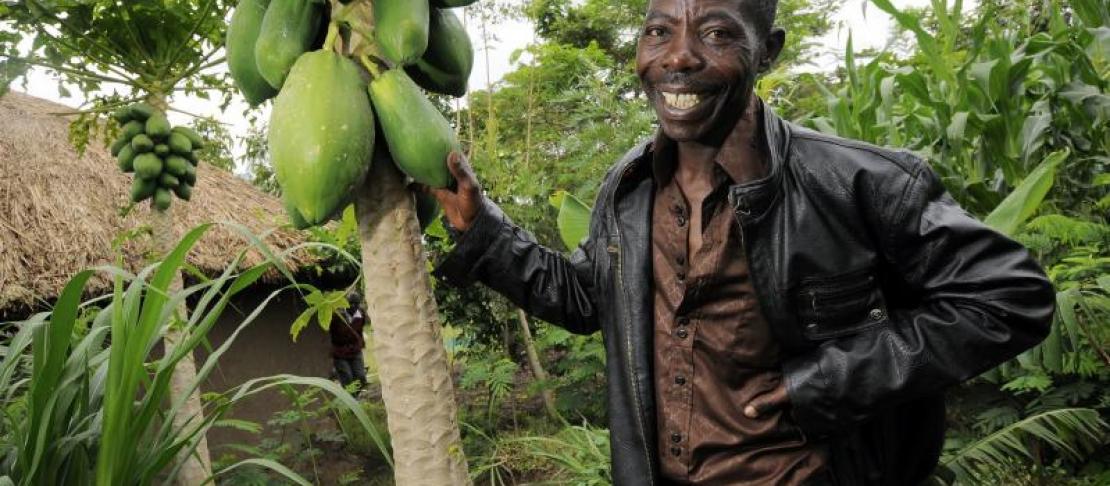Informing implementation of climate-smart agriculture at national, regional, and continental scales

Summary
The research was implemented in collaboration with the World Agroforestry Centre (ICRAF), the International Maize and Wheat Improvement Center (CIMMYT), the International Livestock Research Institute (ILRI) and the International Center for Tropical Agriculture (CIAT).
CCAFS Scientists at the World Agroforestry Centre (ICRAF), the International Center for Tropical Agriculture (CIAT), the International Maize and Wheat Improvement Center (CIMMYT), and the International Livestock Research Institute (ILRI) are developing two Practical Guides (PGs) on climate-smart agriculture (CSA), partnering with African governments and universities, the New Economic Partnership for African Development (NEPAD), UN Food Agriculture Organization (FAO), the Common Market for Eastern and Southern Africa (COMESA), and civil society organisations. The first PG has already been cited by the Kenyan CSA Country Program, which has informed Kenya’s Intended Nationally Determined Contributions (INDCs) to the United Nations Framework Convention on Climate Change (UNFCCC). PG1 is focused on disseminating conservation agriculture techniques. Although the second PG is still a work in progress, it will likely influence the plans of at least five national governments, three Regional Economic Communities, and five international nongovernmental organisations (INGOs). PG2 will develop, based on stakeholder feedback received from PG1, a new “farming component-based” approach. The funding landscape for CSA is rapidly developing, meaning that both Practical Guides have the potential to influence millions of dollars of investments in the near future.
Key facts
- PG1 will be highlighted as an example of extension materials used for scaling-up CSA in Kenya
- PG2 will form the basis of NEPAD’s CSA implementation, including partners in the NEPAD-iNGO Alliance and NEPAD Pan-African CSA Alliance
Lessons: key elements of success
- Consultation with stakeholders helped fine-tune the scope of the PG toolkits
- PG2’s component-based approach is a radical shift in how persons are thinking about CSA and CSA implementation, which could influence CSA implementation globally including results based payments for CSA and M&E
Related research outputs
- Richards M, Sapkota T, Stirling C, Thierfelder C, Verhulst N, Friedrich T, Kienzle J. 2014. Conservation agriculture: Implementation guidance for policymakers and investors. CGIAR Research Program on Climate Change, Agriculture and Food Security (CCAFS), Copenhagen.


